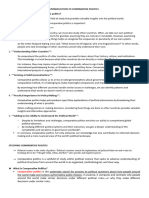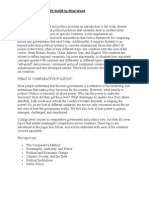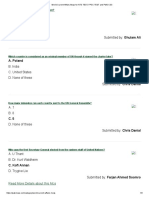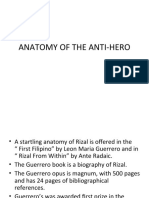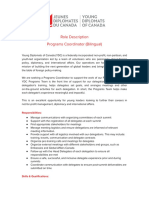0% found this document useful (0 votes)
74 views10 pagesModule1 Assign.1&2, ComPol
This document contains a student's responses to questions about comparative politics. The student discusses several key areas:
1) The major areas of interest in comparative politics include political development, regime types and changes, representation and participation, policy-making processes, and political economy.
2) Comparative politics focuses on comparing political decisions, actions, and power across different countries to understand political phenomena.
3) Studying comparative politics provides important lessons across locations and allows theories to be developed about how politics works globally.
Uploaded by
Patricia GatonCopyright
© © All Rights Reserved
We take content rights seriously. If you suspect this is your content, claim it here.
Available Formats
Download as DOCX, PDF, TXT or read online on Scribd
0% found this document useful (0 votes)
74 views10 pagesModule1 Assign.1&2, ComPol
This document contains a student's responses to questions about comparative politics. The student discusses several key areas:
1) The major areas of interest in comparative politics include political development, regime types and changes, representation and participation, policy-making processes, and political economy.
2) Comparative politics focuses on comparing political decisions, actions, and power across different countries to understand political phenomena.
3) Studying comparative politics provides important lessons across locations and allows theories to be developed about how politics works globally.
Uploaded by
Patricia GatonCopyright
© © All Rights Reserved
We take content rights seriously. If you suspect this is your content, claim it here.
Available Formats
Download as DOCX, PDF, TXT or read online on Scribd
/ 10













